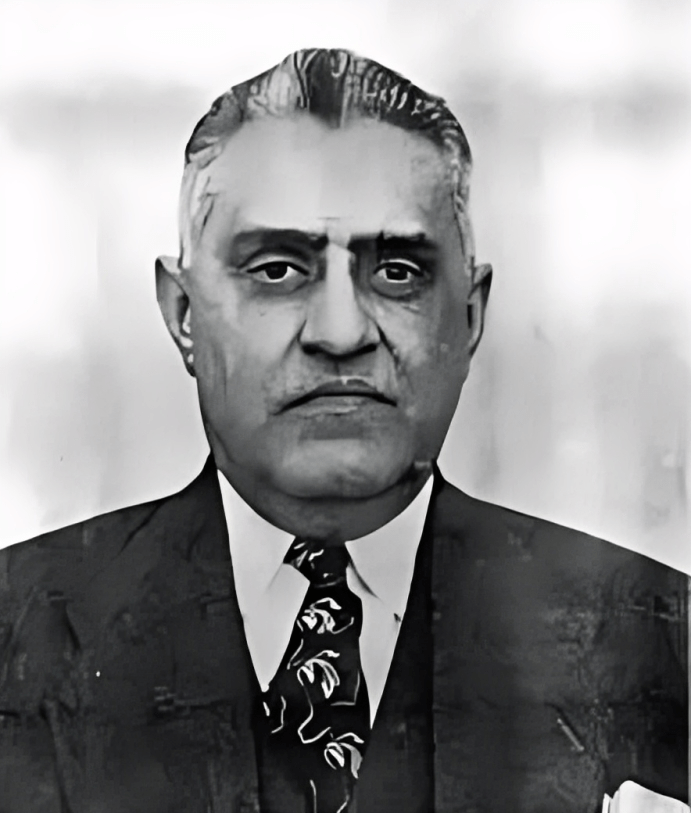Khan Bahadur Mohammad Ayub Khorho was born on August 14, 1901. His father was Wadero Shah Mohammad Khorho, the head of Khorho clan and landlord of Larhkhana and Khairpur district in upper Sind. The family lineage can be traced back to Samath ethnic group, which originated from the Induvarse Rajputs.
Mohammad Ayub got his early education in his village, Sindhi being the medium of instruction but later an English tutor was arranged from nearby village Dado. At the age of twelve he was sent to Larkhana in a school where English has to be taught, but it was again contrary to his father’s wish. But the moral support of his uncle, Jan Mohammad, a social and political worker, aware of the need of education, gave Ayub Khorho an opportunity to get advance education at that age. For matriculation examination he had to leave for Sind Madrassah at Karachi and passed the examination with honor in 1920. Khorho took admission in Jethmad Sind College (D.J Sindh College) for higher studies but his father’s death in 1921 did not allow him to fulfill his dreams. Unlike other political leaders of his age, he did not participate in the Khilafat movement. In 1922 Ayub Khorho was elected to the District Local Board and later to the Larhkana Municipal Committee, gave him an opportunity to be the active player in local politics. The following year he successfully contested the election for the Bombay Legislative council. Khorho was also the chief protagonist of separation of Sind from Bombay presidency. He worked tirelessly publishing and distributing material and persuading Muslim leaders of other provinces and political parties to support the cause of Sindhi Muslims in particular and other Muslims in general. He wrote the first book Sufferings of Sind, which was published on May 26, 1930. In July 1942 while Jinnah announced his new 21-member working committee of All India Muslim League, Khorho and G.M Syed were the two members from Sind.
Khorho was nominated for the premiership of Sind after independence by Sind Muslim League and became the first Chief Minister of Sind in the independent Pakistan.
Khorho took charge of Sind in the most critical and difficult moments of history just after partition. But he proved to be the man of crisis as Jinnah paid rich tribute to Khorho saying, “Khorho is the most efficient minister I have seen”. But rumors and intrigues gave birth to a gulf between Khorho and Governor Hidayatullah and later with Prime Minister Liaquat Ali Khan that led to his resignation on April 26, 1948 from the portfolio as Chief Minister.
A special court of inquiry was set up, which declared Khorho responsible for 62 charges in his 18 month Premiership of Sind. Under the section 3 of PRODA Governor General on March 22, 1949 disqualified Khorho for three years for any Public Representative Office. However, on March 20, 1950 the Chief Court of Sind declared the order, that disqualified Khorho as “inoperative, illegal and ultra vires” and ruled that Khorho continued to be a member of Sind Provincial Assembly and Pakistan Constituent Assembly.
He took oath for the office of Chief Minister of Sind for second time on March 25, 1951 and remained in office till December 29, 1951.
This article was last updated on Friday, Jan 04, 2008






